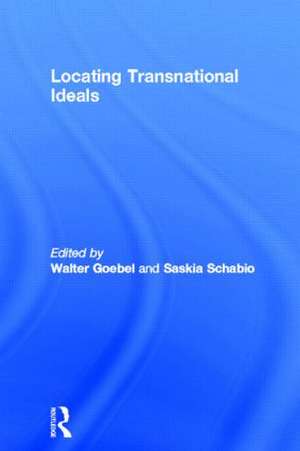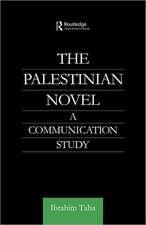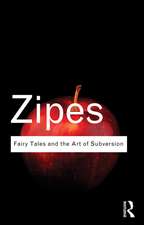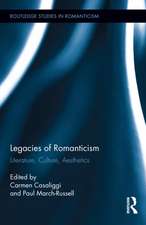Locating Transnational Ideals: Routledge Research in Postcolonial Literatures
Editat de Walter Goebel, Saskia Schabioen Limba Engleză Hardback – 17 dec 2009
| Toate formatele și edițiile | Preț | Express |
|---|---|---|
| Paperback (1) | 452.69 lei 6-8 săpt. | |
| Taylor & Francis – 23 apr 2015 | 452.69 lei 6-8 săpt. | |
| Hardback (1) | 1057.09 lei 6-8 săpt. | |
| Taylor & Francis – 17 dec 2009 | 1057.09 lei 6-8 săpt. |
Din seria Routledge Research in Postcolonial Literatures
-
 Preț: 311.41 lei
Preț: 311.41 lei - 9%
 Preț: 1003.52 lei
Preț: 1003.52 lei -
 Preț: 311.41 lei
Preț: 311.41 lei -
 Preț: 393.05 lei
Preț: 393.05 lei -
 Preț: 280.99 lei
Preț: 280.99 lei -
 Preț: 311.43 lei
Preț: 311.43 lei - 18%
 Preț: 1058.19 lei
Preț: 1058.19 lei -
 Preț: 344.32 lei
Preț: 344.32 lei - 18%
 Preț: 1112.65 lei
Preț: 1112.65 lei - 18%
 Preț: 1110.77 lei
Preț: 1110.77 lei - 26%
 Preț: 820.71 lei
Preț: 820.71 lei - 18%
 Preț: 1055.51 lei
Preț: 1055.51 lei - 18%
 Preț: 1005.39 lei
Preț: 1005.39 lei -
 Preț: 441.74 lei
Preț: 441.74 lei - 18%
 Preț: 1054.89 lei
Preț: 1054.89 lei - 18%
 Preț: 1112.34 lei
Preț: 1112.34 lei - 18%
 Preț: 1058.43 lei
Preț: 1058.43 lei -
 Preț: 462.81 lei
Preț: 462.81 lei -
 Preț: 463.14 lei
Preț: 463.14 lei - 18%
 Preț: 1055.32 lei
Preț: 1055.32 lei -
 Preț: 443.65 lei
Preț: 443.65 lei - 29%
 Preț: 260.33 lei
Preț: 260.33 lei - 18%
 Preț: 1054.71 lei
Preț: 1054.71 lei - 18%
 Preț: 1004.34 lei
Preț: 1004.34 lei - 18%
 Preț: 1056.63 lei
Preț: 1056.63 lei -
 Preț: 389.66 lei
Preț: 389.66 lei -
 Preț: 482.94 lei
Preț: 482.94 lei - 18%
 Preț: 1104.48 lei
Preț: 1104.48 lei - 18%
 Preț: 1114.30 lei
Preț: 1114.30 lei - 18%
 Preț: 1000.30 lei
Preț: 1000.30 lei -
 Preț: 485.99 lei
Preț: 485.99 lei -
 Preț: 485.24 lei
Preț: 485.24 lei - 12%
 Preț: 339.94 lei
Preț: 339.94 lei - 18%
 Preț: 1053.16 lei
Preț: 1053.16 lei - 18%
 Preț: 1051.60 lei
Preț: 1051.60 lei -
 Preț: 384.86 lei
Preț: 384.86 lei - 18%
 Preț: 1006.77 lei
Preț: 1006.77 lei - 18%
 Preț: 1111.51 lei
Preț: 1111.51 lei - 18%
 Preț: 969.71 lei
Preț: 969.71 lei - 18%
 Preț: 1007.48 lei
Preț: 1007.48 lei
Preț: 1057.09 lei
Preț vechi: 1289.13 lei
-18% Nou
Puncte Express: 1586
Preț estimativ în valută:
202.27€ • 211.76$ • 167.37£
202.27€ • 211.76$ • 167.37£
Carte tipărită la comandă
Livrare economică 05-19 aprilie
Preluare comenzi: 021 569.72.76
Specificații
ISBN-13: 9780415871365
ISBN-10: 0415871360
Pagini: 288
Ilustrații: 6 halftones
Dimensiuni: 152 x 229 x 15 mm
Greutate: 0.52 kg
Ediția:1
Editura: Taylor & Francis
Colecția Routledge
Seria Routledge Research in Postcolonial Literatures
Locul publicării:Oxford, United Kingdom
ISBN-10: 0415871360
Pagini: 288
Ilustrații: 6 halftones
Dimensiuni: 152 x 229 x 15 mm
Greutate: 0.52 kg
Ediția:1
Editura: Taylor & Francis
Colecția Routledge
Seria Routledge Research in Postcolonial Literatures
Locul publicării:Oxford, United Kingdom
Public țintă
Postgraduate and UndergraduateCuprins
Acknowledgments Introduction: Locating Transnational Ideals, Walter Goebel and Saskia Schabio Part I: Defining the Transnational and the Cosmopolitan 1Globalization, Transnation and Utopia, Bill Ashcroft 2: Politics or Ethics? On Cosmopolitanism, Timothy Brennan 3: The Ethics of a Critical Cosmopolitanism for the Twenty-First Century, Heinz Antor 4: Toward a Philosophy of Transnationalism, Laura Doyle 5: Toward a Non-Cynical Universalism, Keya Ganguly Part II: Historicizing the Transnational and the Cosmopolitan 6: The Fascination of ‘Living Together in a Civilized Way’ or Nations and Cosmopolitanism in More’s Utopia (1516) and Ribeiro’s Wild Utopia (1982), Hans Ulrich Seeber 7: Cultural Nationalism Reconsidered: Ossian in Postcolonial Perspectives, Tobias Döring 8: Hard and Soft Cosmopolitanism: The Eighteenth Century and After, Walter Goebel 9: Exhibiting Difference: The Museum as a Guide to Spectatorship, Renate Brosch 10: The First Colonial Art Museum and Transnationalism in the Visual Arts: Saint-Denis, La Réunion, 1912, Bärbel Küster Part III: Redefining Transnationalism(S) Vs. International Commodification 11: Remembering Africa: Africa as the Sign of the Transnational in Black-British Writing, Mpalive Msiska 12: The Great Game: The Geopolitics of Secret Knowledge, Gauri Viswanathan 13: The Transnational Passage of the Spanish Word cimarrón, Elyette Benjamin-Labarthe 14: The Border as Third Space: Between Colonial Gaze and Transnational Dislocation, Noha Hamdy 15: Cracked Communicating Vessels: Sexuality, Body Modification, and Flesh in the West and the ‘non West’, Chantal Zabus 16: Globalizing Jane Austen: An Analysis of Gurinder Chadha’s Pride and Prejudice Adaptation Bride and Prejudice, Sarah Säckel List of Contributors
Notă biografică
Walter Goebel is Professor of Literature at the University of Stuttgart.
Saskia Schabio is Professor of Literature at the University of Stuttgart.
Saskia Schabio is Professor of Literature at the University of Stuttgart.
Descriere
This volume defines versions of the transnational in their historical and cultural specificity. By "locating," the contributors contextualize historical and contemporary understandings of the fluid term "transnational," which vary in relation to the disciplines involved. This kind of historical and geographical "locating" implicitly turns against forms of contemporary transnational euphoria which, inspired by poststructural models of all-encompassing semiospheres, on the one hand, and by visions of the utopian communicative potential of new media like the internet, on the other, see national and ethnic paradigms as easily superseded by transnational agendas. By differentiating between various forms of transnational ideals and ideas in historical and geographical perspective since the Renaissance, the contributors aim to rediscover distinctions -- for instance between transnationalisms and cosmopolitanisms -- which neo-liberal transnational euphoria has tended to erase.


















